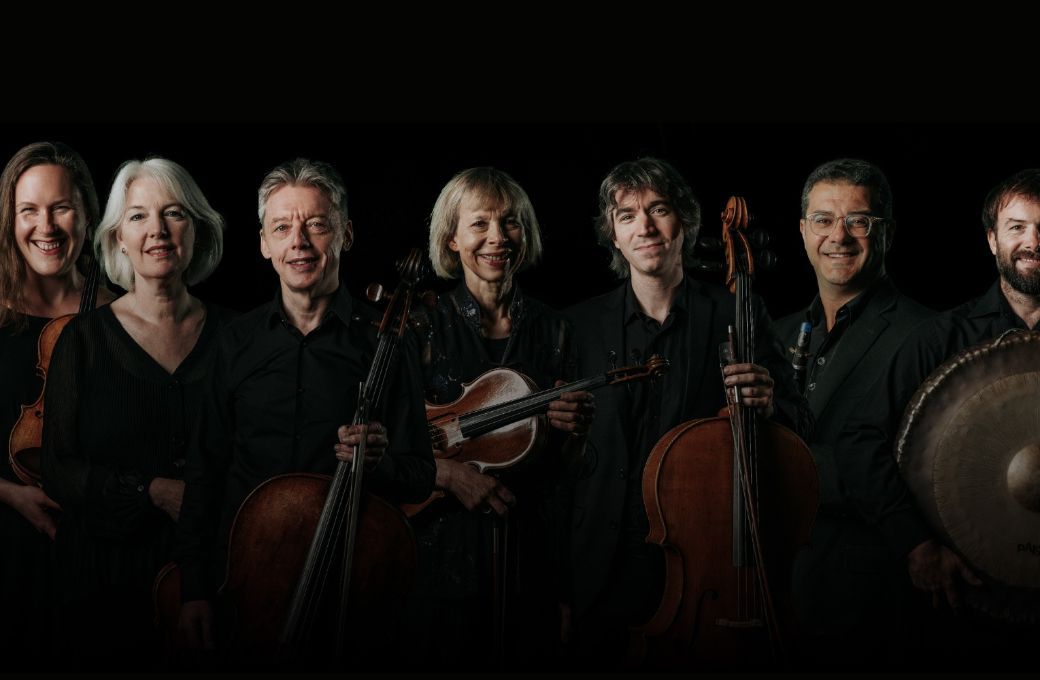Celebrating its 30th anniversary, The Hebrides Ensemble, a chamber group “making new music familiar and familiar music new”, is directed by cellist William Conway. Making its debut visit to Perth Festival of the Arts, the group’s strapline was a perfect fit for the specially curated ‘Auld Alliance’ programme of modern Scottish pieces dovetailed with 20th-century French works.

Judith Weir’s The Bagpiper’s String Trio is a gentle, fragmentary piece with an engaging story of Jacobite piper James Reid, captured by the English in 1746 and executed after a judge classified the bagpipes as a weapon. Musically based on bagpipe intervals with occasional Scottish snap rhythms, Jessica Beeston (viola) and Katherine Hunka (violin) exchanged phrases in the opening Salute, Conway’s pizzicato adding stability. Slow rhythmic unisons in the Nocturne gave way to the flowing phrases and a singing cello in the Lament as violin and viola wove a complex lattice.
Lyell Cresswell’s Variations on a Theme by Charles Ives for flute and cello is a suite of a dozen short variations. Katherine Bryan’s bright flute journeyed through piercing lively animation to mysterious low register moments, Conway’s cello an equal partner. Each variation plays on aspects like rhythmic and actual unisons, one intriguingly had the players playing just in and out of rhythmic phase. A challenging listen, it was a relief to hear the theme Songs my Mother Taught me emerge, Bryan’s flute now with a bluesy edge.
Between Land and Sea by Sally Beamish for flute, viola and harp is based on an ancient Celtic lament, using the mournful call of the redshank, a bird said to represent the transition from life to death, the land on which man lives to the ocean which signifies eternal life. Sharron Griffiths’ harp chords gave an ethereal restlessness as the flute’s birdsong and the viola’s floated phrases created a beautiful sound world. After a voyage through rougher seas with catchy rhythms, the piece ended with Bryan breathing long haunting notes.
The contrasting French pieces interleaved the Scottish. Jean Françaix's Adagio – Allegro from his Clarinet Quintet began pastorally, Yann Ghiro’s clarinet phrasing exquisitely around the sensitive string playing, each instrument emerging with subtle contributions. Suddenly, as if a bright sunbeam had emerged behind a cloud, the clarinet moved from dark to light in a choppy dance, the violins flourishing bravely, the ensemble sparkling with energy.
Olivier Messiaen’s Quartet for the End of Time was written in an internment camp in appalling conditions, using the only instruments available. Yann Ghiro gave a moving and heartfelt performance of L'Abime des Oiseaux, his solo clarinet holding the audience in St John’s Kirk completely spellbound. The silences were powerful as Ghiro pulled notes out of the ether, slowly growing each of them, weaving his instrument from side to side to fill the building before breaking out into chattering birdsong. This was a truly mystic searing interpretation of a work filled with endless sad weariness.
The final piece brought all the players together for Ravel’s Introduction and Allegro, beginning with yearning themes in a gorgeous mellow soundscape as flute, clarinet and harp embellished the string quartet. Griffiths had a pivotal showpiece harp part stitching the music together with wonderful glissandi as the tempo quickened and the ensemble picked up the energy, always in perfect balance, the sound a wonderfully lush and warm end to the performance.


